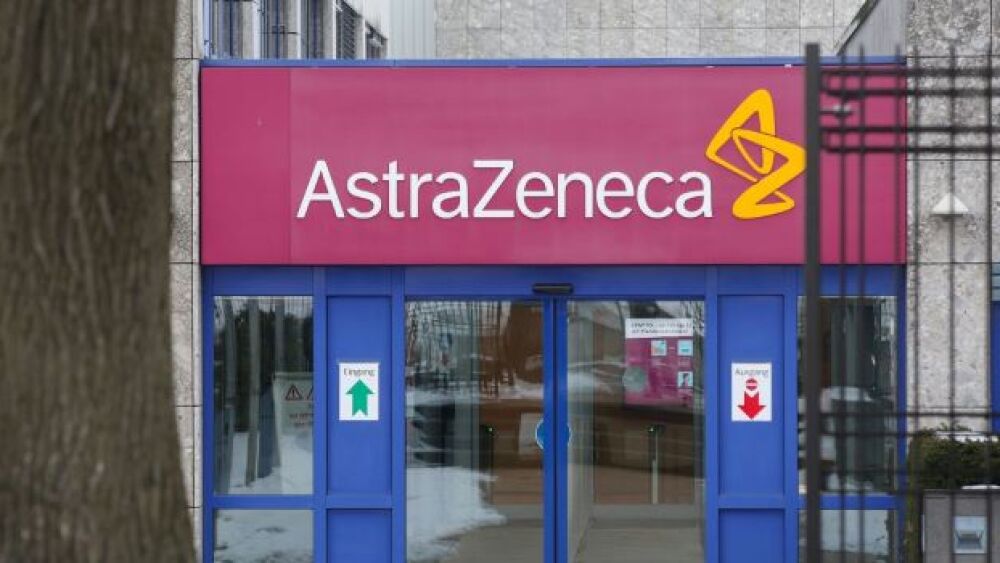The U.S. FDA has approved Lynparza for the adjuvant treatment of patients diagnosed with germline BRCA-mutated HER2-negative high-risk early breast cancer.
Bodo Marks/picture alliance via Getty
The U.S. Food and Drug Administration has approved Lynparza (olaparib) for the adjuvant treatment of patients diagnosed with germline BRCA-mutated (gBRCAm) HER2-negative high-risk early breast cancer.
Lynparza, a product of the collaboration between MSD and AstraZeneca, is designed for gBRCAm patients who have already undergone chemotherapy before or after surgery. It is a first-in-class PARP inhibitor and can block DNA damage response in cells or tumors with a homologous recombination repair deficiency. Inhibiting PARP proteins using Lynparza traps can lead to cancer cell death. It is approved for use in the EU, the U.S, Japan and other countries for patients with gBRCAm, HER2-negative metastatic breast cancer previously treated with chemotherapy and, if hormone receptor-positive, endocrine therapy if appropriate.
The FDA’s green light was based on the positive outcome of the OlympiA Phase III trial, which was presented at the American Society of Clinical Oncology Annual Meeting in 2021. In the study, the drug showed that it is able to significantly improve outcomes for invasive disease-free survival by 42% compared to those given a placebo. Meeting this primary endpoint meant a reduced risk of invasive breast cancer recurrences, second cancers or death. Details of this part of the trial appear in The New England Journal of Medicine.
Lynparza also showed a clinically meaningful overall survival rate, its secondary endpoint, reducing the risk of death by 32% compared to the placebo group. Tolerability and safety profiles remained consistent with earlier studies. Details of this outcome will be revealed on March 16 at the European Society for Medical Oncology virtual plenary.
“Most breast cancers are identified in the early stages and many patients will do very well, but for those with higher risk disease at diagnosis, the risk of cancer returning can be unacceptably high and new treatment options are needed. OlympiA has shown that identifying a BRCA1/2 mutation in women with high risk disease opens the additional option of eligibility for olaparib treatment, which reduces the risk of recurrence and improves survival for these breast cancer patients,” said Prof. Andrew Tutt, the global chairperson of the OlympiA Phase III study, in a statement.
Breast cancer affected as many as 2.3 million people worldwide in 2020. The positive outcome of the OlympiA study brings good news as 91% of those diagnosed with breast cancer are detected early. About 5 to 10% of patients were found to have BRCA mutations. BRCA1 and BRCA2 are human genes that produce proteins that repair damaged DNA. When either is altered or mutated, it could lead to cell damage and cancer.
The five-year survival rate for localized breast cancer is 99%, while the survival rate for patients with regional breast cancer is 86%. Those who will be treated using Lynparza will be selected based on an FDA-accredited diagnostic test.
“Lynparza reduces the risk of disease recurrence in these high-risk patients and now new data confirm it also significantly extends patients’ lives versus placebo. These data underline the importance of germline BRCA testing as soon as possible after diagnosis to identify patients that may be eligible for Lynparza,” commented Dave Fredrickson, the executive vice president of AstraZeneca’s oncology business arm, in the same press release.
The OlympiA study is led by the Breast International Group alongside the Frontier Science & Technology Research Foundation, the U.S. National Cancer Institute, NRG Oncology, MSD and AstraZeneca. It is sponsored by AstraZeneca outside the U.S. and NRG in the country.
AstraZeneca partnered with MSD in July 2017 to co-develop and co-commercialize Lynparza and Koselugo (selumetinib) to treat different types of cancer. The partnership’s goal is to develop the two drugs in combination and as monotherapies.





